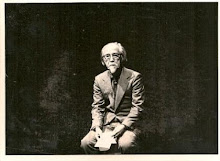
When using the medium of film to explore an idea or to tell a story an obstacle that can trip up many directors and screenwriters is how to not get stuck in cliches and to capture something as transitory as the truth. Billy Wilder built a career as a dissector of American social norms and taboos, and in the process gained a reputation for making entertaining films that had an acerbic bite.
After challenging the censors with his gender-bending comedy, Some Like It Hot, Wilder decided to take on corporate culture with The Apartment. Combining comedy with drama Wilder not only makes the bittersweet film more palatable to an audience not accustomed to his brand of cynicism, but he also upturns the ingrained belief that the main prerogative of getting ahead supersedes our duty to be a mensch.
The genesis for the movie can be credited to a one-act play by Noel Coward entitled Still Life which was later made into a film, Brief Encounter, by David Lean. Wilder took a minor character from the story, a man who loans out his apartment to the couple in the film so that they can continue their affair, and builds his own unique story from it.
Like many of Billy Wilder's best films The Apartment opens with a voice-over narration by C.C. Baxter, played by Jack Lemmon, who rattles off a few facts about his job, his life, and more importantly his apartment. This narration plays over a beautiful aerial shot of Manhattan which is eventually interrupted when the camera cuts to the offices of Consolidated Life.
The first image we get of C.C. Baxter is that of a worker bee trapped in a cold, cavernous, and antiseptic hive. This shot was done in homage to King Vidor's silent film The Crowd, which is also about an ambitious office worker that struggles to not get swallowed up by his soul crushing job.
Throughout most of the film Jack Lemmon portrays Baxter as a quiet unassuming milquetoast. You can't help but feel bad for a character who lives the bachelor lifestyle but enjoys none of its amenities. The office managers on his floor dangle the executive wash room key in front of him as a way to gain access to his place for their sexual dalliances but all Baxter is ever left with is an apartment littered with empty liquor bottles and neighbors who look upon him with an equal measure of disgust and jealousy, believing that Baxter is some sort of playboy bedding a new woman every night.
As pathetic as Baxter is, it is impossible to ignore the fact that he is a willing accomplice to upper management's abuse of power. His shortcut to the executive wash room may yield him a few pats on the back, but ultimately he is the main culprit for all his misery. The main reason why the character escapes complete derision from the audience is because of Jack Lemmon's performance. Billy Wilder looked to Lemmon to play the role of C.C. Baxter because he exuded an "average but mischievous" vibe. When you watch Jack Lemmon on screen as C.C. Baxter you aren't seeing an actor plying his trade but rather a man just being.
Another very important element to the film's success is Shirley MacLaine who plays Fran Kubelik, an elevator operator and love interest for C.C. Baxter. Described by I.A.L. Diamond, Wilder's co-writer on the film, as being "sexy, funny, sad" MacLaine never takes the easy route by portraying Fran as a victim. Unlike most of the female characters in the film Fran is not a caricature. You don't objectify her like you do the women that Baxter's bosses bring to his apartment. Both Fran and Baxter suffer from the pangs of loneliness. While Baxter tries to fill that void with delusions of corporate advancement Fran hitches her wagon to Jeff D. Sheldrake, portrayed by Fred MacMurray, who she engages in an illicit affair with before the start of the film.
By the start of the film though their relationship is already at its death throes. Fran's later suicide attempt is incited not so much by her relationship with Sheldrake being over, but by her realization that she allowed somebody to exploit her need for sincere human contact.
As Fran recuperates at Baxter's apartment they unwittingly start to play house. They fall into their roles quite easily and both characters seem to finally let down their guard. Their game of house shatters Baxter's misplaced belief that attaining the props of success, e.g. a big office, access to the executive wash room, will guarantee him happiness. This epiphany of course comes at a very big price. Although Wilder gives us what we want at the end, Fran and Baxter together, the last line of the film leaves a bitter taste in our mouths. Since happiness in all its forms is fragile their future together is uncertain, but maybe they can make it work.



